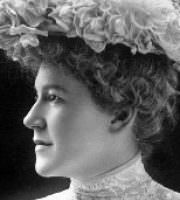by Lee Passarella
It’s a gripping good story, even if it wears
its moral tag as plainly as a care-instruction label:
Do this, don’t do that, and keep the gods’ arrows sheathed.
At the start of Phaeton’s story all is well,
just the sheer sport of lopping hours from the day
like layers from an artichoke, watching
those sublunary maggots acclimate, or try; work
six hours, sleep for three, work four hours, sleep for one.
Some fun. And then the bad news:
the sun-car goes scraping past the lid of old Mt. Atlas,
its million-mile-broad axle shearing boulders
big as Sparta. Blackening tines of mountain pine trees
shed their leprous hide, each match-head needle
screaming out for sulfurous death.
Rivers near the boiling point,
man and beast both on the spit.
Then Phaeton hurtles from his joyride.
In Saint-Saëns’ tone poem, a wimpy single cymbal clash
is Zeus in righteous dudgeon towering above the clouds—
god as breaching whale—letting sail the thunderbolt.
But it’s the fiery machina by which deus
saves the world, a story to inspire awe and sober fear
in those who creep beneath Olympus’ napalm haze.
Somehow, I think of Cagney’s Cody Jarrett as he rides
the volcano’s blue-hot plume, Top Of The World.
Or of Slim Pickens in ballistic freefall,
busting the bucking bronco of the world’s last night.
Or even stranger, of John Garfield, big star of the forties;
Tail Gunner Joe, the U.S. House all set
to shoot him down for perjury in ’52,
instead dying of a worn-out ticker—
dying in a lady friend’s apartment,
as the Hollywood dirt would have it, “with his boots on.”
We always say, boy, we’d like to go that way,
never even knowing what hit us. But think again.
Think of going out in the grandeur of a fall almost as steep
as the rebellious angels took,
even if you’re just a has-been meteor like Icarus
or Welles, a tottering patchwork
of wild invention and scorched earth.





